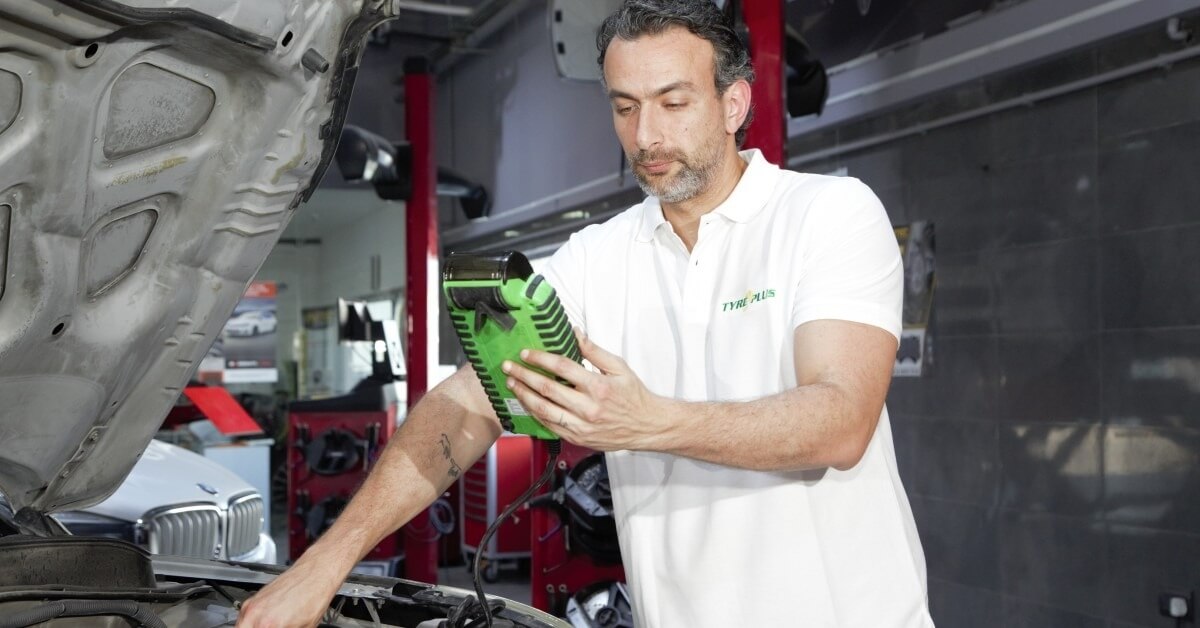The Ultimate Guide to Car Battery Maintenance
Tips to extend the life of your car battery

When it comes to your vehicle's electrical system, the car battery is one of the most critical components. The car battery supplies the essential energy required to initiate the engine, power up the lights, and operate diverse electrical components like air conditioning, stereo, and power windows. To keep your car battery in good condition, remember to get it checked regularly, keep it clean, limit short trips, turn off electrical devices before starting your car, avoid extreme temperatures, and drive your car frequently.
These are all critical factors that can help extend the lifespan of your car battery and prevent unexpected breakdowns. A malfunctioning car battery can leave you stranded and in need of a tow or battery replacement, causing significant inconvenience. Ensure your vehicle's optimal performance by maintaining your car battery in good condition.
Maintaining a healthy car battery is crucial to keep your vehicle running smoothly for an extended period. Follow these practical tips to ensure your battery remains in top condition. By following these simple yet effective practices, you can extend the lifespan of your car battery and avoid costly replacements.
1. Regular Check-Ups
Regular check-ups are essential to ensure your car battery is performing efficiently. The battery terminals and cables should be checked for signs of corrosion, fraying, or damage. If you notice any issues, replace them immediately to prevent further damage to the battery.
You can also use a voltmeter to check the voltage of your battery. A reading of 12.4 volts or higher indicates a healthy battery. If your car battery is low on power, it might mean your alternator is faulty.
A faulty alternator can cause your battery to lose its charge and fail to start your car. In this case, it's recommended to have your alternator checked by a professional mechanic.
2. Keep Your Battery Clean
Cleaning your battery regularly is essential to prevent the accumulation of corrosive materials, dirt, or debris that can interfere with the performance of your battery. Use a damp cloth and baking soda to clean the terminals and cables, rinse with water, and dry with a clean towel.
If your battery has severe corrosion, it is best to remove the battery and clean it thoroughly. Corrosion can cause a poor connection between the battery and the cables, leading to a loss of power. It's also essential to make sure that the battery is tightly secured to prevent it from moving around while driving, which can also cause damage.
3. Limit Short Trips
Short trips can significantly decrease the lifespan of your car battery by not allowing the battery to fully charge. If you frequently take short trips, consider investing in a battery charger to keep the battery fully charged and prevent the battery from losing power over time.
A battery charger can be connected to your battery while parked, ensuring that it is fully charged and ready to go when you need it. It's also recommended to take longer trips occasionally to allow the battery to fully charge.
4. Turn off All Electrical Devices
When starting your car, turn off all electrical devices such as lights, AC, and the radio. Turning off these electrical devices reduces the amount of current needed to start the car, reducing the strain on the battery.
If your battery is already weak, leaving these devices on can cause your battery to lose power even faster. It's also essential to avoid using electrical devices when the engine is not running as this can drain the battery quickly.
5. Avoid Excessive Heat and Cold
Extreme temperatures can affect the performance of your battery by decreasing its lifespan. Avoid extreme heat and cold by parking your vehicle in a covered area or garage and using a battery insulator during colder months to keep it warm.
A battery insulator is a device that wraps around your battery, keeping it warm and preventing it from losing power due to extreme cold. It's also essential to ensure that the battery is not exposed to direct sunlight for an extended period, as this can cause the battery to overheat.
6. Drive Your Car Regularly
Driving your car regularly is an excellent way to prevent battery discharge, but what if you don't use your vehicle often? If that's the case, consider investing in a battery tender to keep your car battery charged and well-maintained. A battery tender is a wise investment that can help extend the lifespan of your car battery and prevent unexpected breakdowns.
A battery tender or maintainer is a device that slowly charges your car battery over time to prevent overcharging and damage. It's available in various types and sizes, so it's vital to choose the right one that matches your vehicle's battery and charging system. By using a battery tender, you can extend your battery's lifespan and avoid unexpected breakdowns.
FAQs about Car Batteries
Q1. How long should a car battery last?
A. The lifespan of a car battery can vary depending on several factors, such as the type and quality of the battery, driving conditions, and maintenance. In general, most car batteries last between one to five years.
If you notice any signs of battery damage or wear, such as slow cranking, dim headlights, or a warning light on the dashboard, get it checked by a professional mechanic who can diagnose the problem and recommend the necessary repairs or replacements. By following these tips and getting regular checkups, you can help ensure that your car battery lasts longer.
Q2. Can a car battery be recharged?
A. Yes, a car battery can be recharged. In fact, recharging a car battery is a common practice and can help extend its lifespan. The easiest and most common way to recharge a car battery is by using a battery charger. Battery chargers come in various types and sizes, so it's crucial to choose the right one that matches your vehicle's battery and charging system.
To recharge a car battery, connect the battery charger's positive and negative cables to the appropriate terminals on the battery. Follow the manufacturer's instructions on how long to charge the battery and the charging rate. Overcharging can damage the battery, so it's essential to monitor the charging process and disconnect the charger when the battery is fully charged.
However, not all batteries can be recharged. If your battery is severely damaged or has exceeded its lifespan, it may not be possible to recharge it. In this case, you may need to replace your battery with a new one.
Regular maintenance and checkups can help prevent battery damage and extend its lifespan. If you notice any issues with your car battery, such as slow cranking or dim headlights, get it checked by a professional mechanic who can diagnose the problem and recommend the necessary repairs or replacements.
Q3. Can jumpstarting a car damage the battery?
A. Jumpstarting a car can damage the battery if not done correctly. Always follow the instructions provided with your car and battery. If the jumpstarting process is done correctly, it should not damage the battery. However, there are a few things to keep in mind to avoid damaging the battery:
- Make sure that the jumper cables are connected correctly to avoid a short circuit or reverse polarity.
- Do not let the jumper cables touch each other while connected to the batteries.
- Avoid jumpstarting a car with a damaged battery or a battery that has exceeded its lifespan, as it can potentially cause further damage.
- After jumpstarting the car, drive it for at least 30 minutes to allow the alternator to charge the battery fully.
If you are not confident in jumpstarting a car, it's best to call a professional mechanic who can jumpstart your car safely and correctly.
Q4. Do I need to replace my battery if the car won't start?
A. If your car fails to start, it could be due to several reasons, including a dead battery, starter motor problems, or a faulty alternator. A dead battery is a common cause of a no-start condition. If your car won't start, check the battery voltage with a voltmeter to see if it's low. If the voltage is low, it could mean that your battery is dead and needs to be replaced.
However, before you replace the battery, make sure to rule out other possible causes, such as a corroded battery terminal or a malfunctioning starter motor. In some cases, the battery may be in good condition, but other components such as the alternator or starter motor may need to be repaired or replaced.
To ensure that you make the right decision, it's advisable to get your car inspected by a professional mechanic who can diagnose the issue and provide the necessary repairs. This can help avoid unnecessary expenses and ensure that your car is running smoothly again. Regular maintenance and checkups can also help prevent unexpected breakdowns and extend the lifespan of your car battery.
